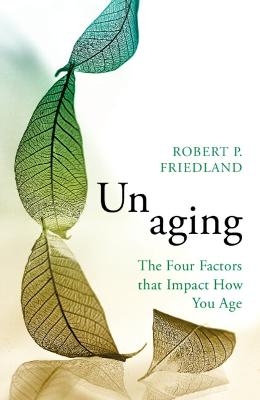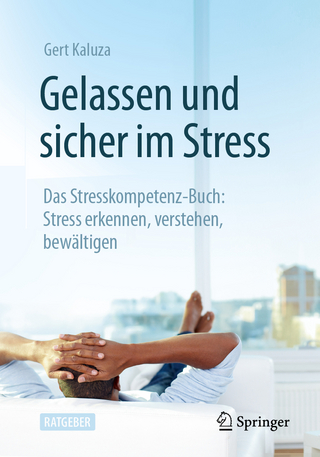
Unaging
Cambridge University Press (Verlag)
978-1-009-08774-2 (ISBN)
Aging is a subject of concern to everyone, but is widely misunderstood. If we view it as inevitable, we miss the fact that not everyone is able to grow to an old age. Realization of this reality helps us to understand that aging presents a wonderful opportunity - an opportunity to make choices about how we live which can enhance the aging process and offer a chance to live to our potential. This book clearly presents the four, multiple reserve, factors (cognitive, physical, psychological and social) which impact our ability to have healthy responses to the stresses of aging. By giving the biological basis for the advice given, you will learn the steps to take in your activities, diet and mental outlook to grasp the opportunity that aging offers. Everyone must know that what we do makes a difference.
Robert Friedland MD is a neurologist and the Rudd endowed professor of Neurology and Neurobiology at the University of Louisville School of Medicine in Kentucky. He previously worked at the University of California, Berkeley, the US National Institute on Aging and Case Western Reserve University. Recently his research has uncovered a key role of intestinal bacteria in the initiation and progression of Alzheimer's disease, Parkinson's disease and amyotrophic lateral sclerosis. His studies of humans and animals in the US, Japan, the Middle East and Kenya have helped to advance the concept that the risk of aging-related brain diseases can be lowered through our personal actions.
List of Figures and Tables; Preface; Part I. Foundations: What Do We Need to Know About Optimal Aging?: 1.1 Aging is not inevitable, it is an opportunity; 1.2 The theory of the multiple reserve factors; 1.3 The Brain is not an organ, it is the Master; 1.4 Memory and cognition; 1.5 The neurodegenerative diseases of aging; 1.6 Stroke and vascular cognitive impairment; 1.7 Other dementias; 1.8 Our microbiota and how to do gene therapy in the kitchen; 1.9 The health of the body and your physical reserve factor; 1.10 Depression, anxiety and what good is feeling bad?; 1.11 Genetics aren't everything; Part II. Applications: What Can We Do About the Opportunity of Aging?: 2.1 Overview; 2.2 Physical activity; 2.3 Whole body health; 2.4 Mental activity; 2.5 Psychological measures; 2.6 Social factors; 2.7 Dealing with stress; 2.8 Sleep; 2.9 Diet; 2.10 Microbial considerations; 2.11 Dental care; 2.12 Dealing with Doctors and Drugs; 2.13 Hazardous behaviors; 2.14 Toxic exposures; Part III. Conclusions; 3.1 Considerations for Society and the Future of Aging; 3.2 Our Attitude and the Opportunity of Aging; Acknowledgments; Glossary; Endnotes; Index.
| Erscheinungsdatum | 14.10.2022 |
|---|---|
| Zusatzinfo | Worked examples or Exercises |
| Verlagsort | Cambridge |
| Sprache | englisch |
| Maße | 130 x 197 mm |
| Gewicht | 390 g |
| Themenwelt | Sachbuch/Ratgeber ► Gesundheit / Leben / Psychologie ► Lebenshilfe / Lebensführung |
| Geisteswissenschaften ► Psychologie ► Entwicklungspsychologie | |
| Medizin / Pharmazie ► Medizinische Fachgebiete ► Neurologie | |
| ISBN-10 | 1-009-08774-6 / 1009087746 |
| ISBN-13 | 978-1-009-08774-2 / 9781009087742 |
| Zustand | Neuware |
| Informationen gemäß Produktsicherheitsverordnung (GPSR) | |
| Haben Sie eine Frage zum Produkt? |
aus dem Bereich


